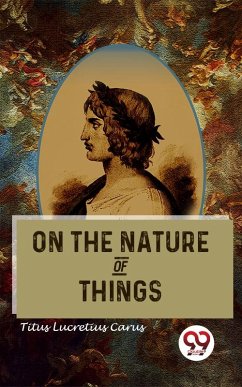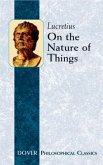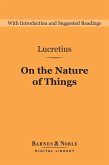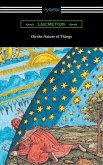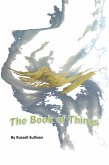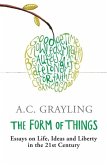The lengthy poem, On the Nature of Things, by Lucretius, published as De Rerum Natura in Latin, presents the Greek philosopher Epicurus's scientific theory. The title of Lucretius's work, Peri physes, is a translation of the title of Epicurus' principal treatise (On Nature). Lucretius structured his discussion into six books, each of which had a very well-crafted introduction. Books I and II lay forth the fundamental ideas of the atomic universe, disprove the competing views of Heracleitus, Empedocles, and Anaxagoras, pre-Socratic cosmic thinkers, and subtly criticize the Stoics, a rival school of moralists to Epicurus. The final sermon in Book III, "Death is nothing to us," illustrates the atomic structure of the soul and its mortality. Book IV criticizes sexual passion while describing the mechanisms of the mind, some physical functions, and sense perception. Book V explains how the world and heavenly bodies were created, how they function, how life evolved, and how human society developed. Book VI covers amazing astronomical and terrestrial events, especially lightning and thunder. The poem concludes with a description of the Athens epidemic, a sombre representation of mortality in contrast to the image of spring and life presented in the poem's opening appeal to Venus.
Dieser Download kann aus rechtlichen Gründen nur mit Rechnungsadresse in A, D ausgeliefert werden.

